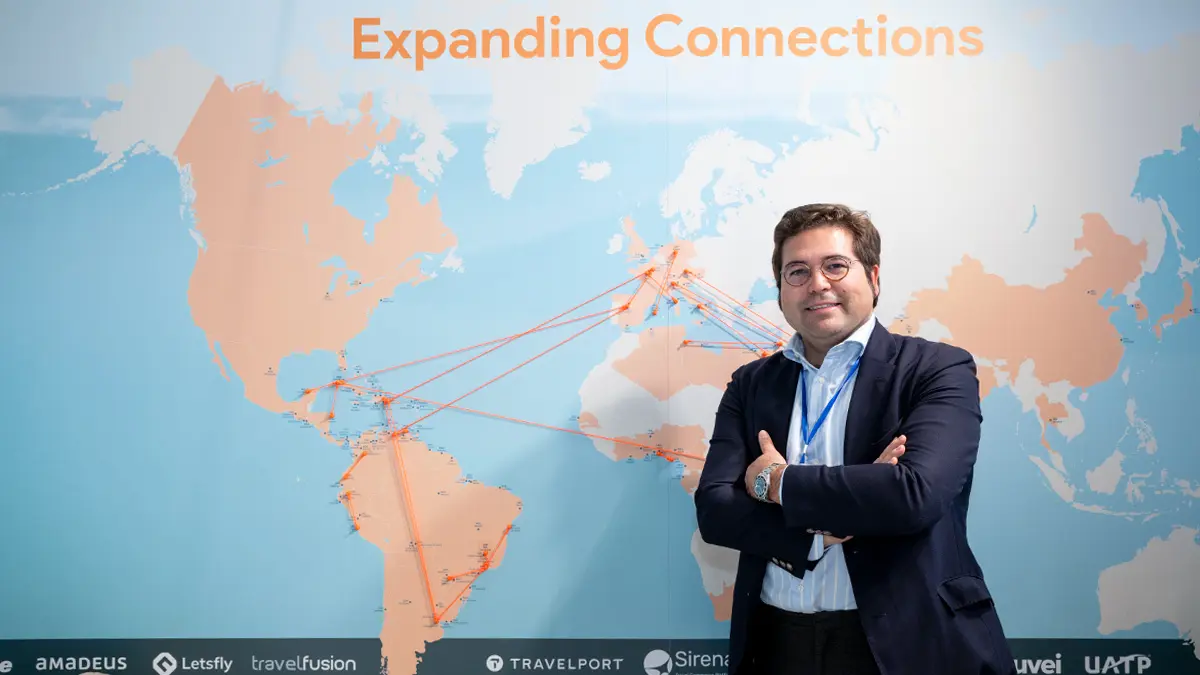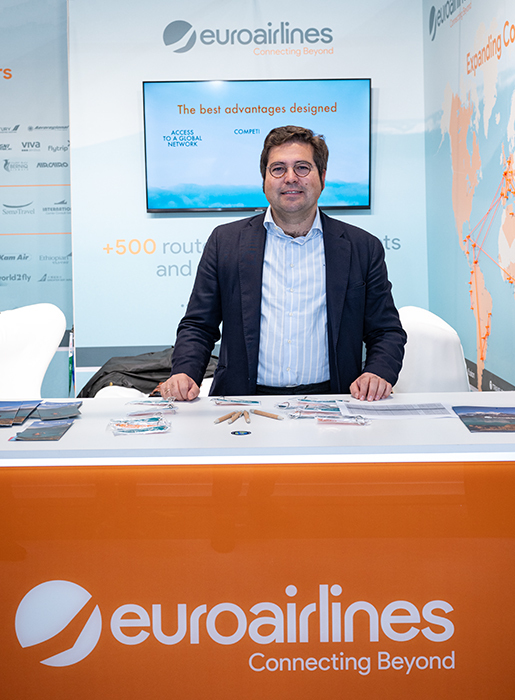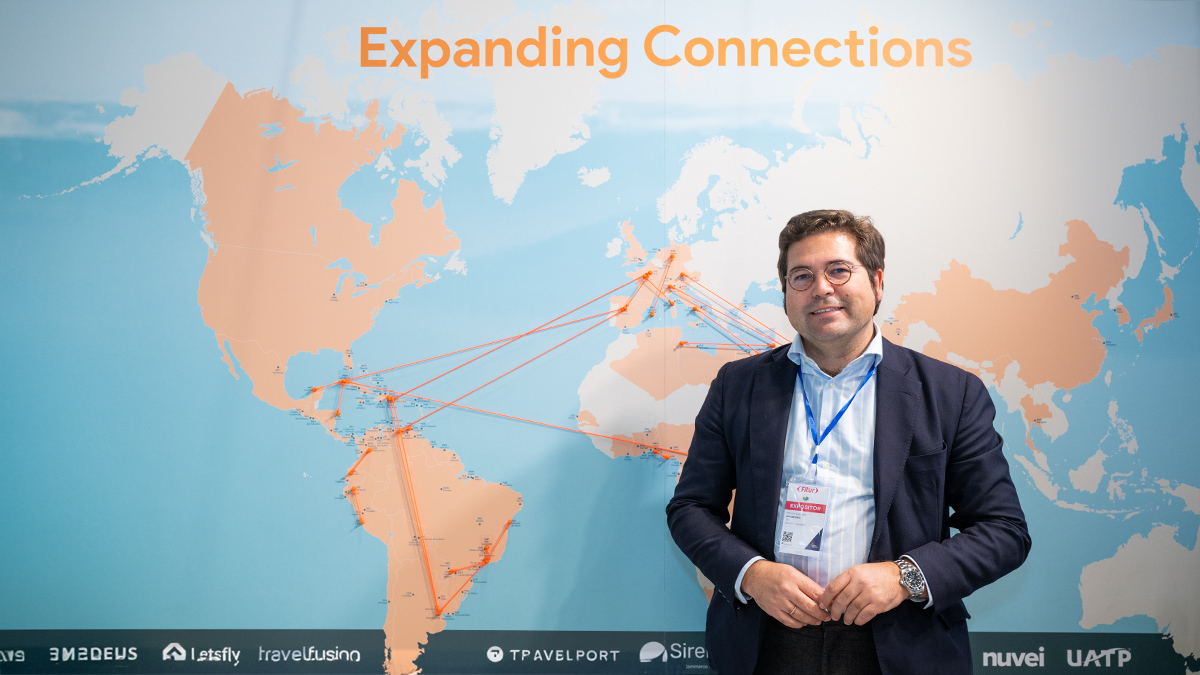‘Morocco and North Africa are on the list of markets we are opening’
Antonio López-Lázaro, CEO of Euroairlines Group, has reviewed for Atalayar the 25 years of the company's history and its commitment to new markets such as Africa

In addition to the major airlines, the air transport sector includes many other operators, which are responsible for providing services to these airlines or for other routes for both freight and passengers. This is the case of the Spanish group Euroairlines, with an important portfolio of services and presence in several continents. Taking advantage of its presence at FITUR 2025, Atalayar interviewed its CEO, Antonio López-Lázaro.
Euroairlines Group celebrates a quarter of a century of activity in the sector in 2025. What were the origins of this company and how has it evolved over the years?
The company was founded in 2000 in Sabadell, as a commercial airline operator for passengers and cargo that has always worked with the American manufacturer Beechcraft and has had aircraft ranging from four to 19 passengers. In 2018 we merged it with two other businesses that we, the López Lázaro family group, had: consultancy and commercial services to airlines. From there we developed a fourth business, which is the main business of the group: distribution for airlines.

What airline fleet do you currently have and what customer profile is the company targeting?
As an airline operator, Euroairlines has two aircraft, with four and six passengers, respectively, and the focus is on radioactive isotope cargo for hospitals with oncology patients and express cargo. In the passenger sector, the Balearic Islands is the end customer. And in the business area, SMEs that have offshored production to the south of France and North Africa. These are the main services we offer.
Your strategy for 2025 focuses on three pillars: sustainable customer growth, technological innovation and international expansion. What are you doing in each of them?
In international expansion, we are moving more and more rapidly eastwards, which is where the macroeconomic and our industry's centre of gravity is moving: by 2050 it will be there. To give you an idea of what we are doing, of the 20 new markets that we are going to open, 15 are in Asia: Vietnam, China, Hong Kong, the Philippines...
In the technological field, we are already including Artificial Intelligence in reporting processes, sales, sales analysis, trends, and also in revenue management, which helps us to optimise cash flows.
And in the area of customer growth, with this global presence in more than 60 markets, it is necessary to seek alliances, such as the one we have with Discover The World, which is an international partner that is helping us to double the number of customers every year.

In a sector as fossil fuel intensive as aviation, the need to develop sustainable aviation fuels (SAFs) is becoming more and more pressing. You are part of a project developing a renewable hydrogen-based UAS.
Yes, we have developed a project together with Castellón Airport, Grupotec and the Polytechnic University of Madrid to implement a hydrogen plant at this airport to serve air and industrial uses, and even land uses in the area, such as buses. The problem is that the aid programme required the amortisation of the industrial installations to take place in four years and that is absolutely unfeasible, so the process was halted. But we still have ambitions for this type of initiative.
In the academic field we are very much linked to FFS, I myself did my thesis on it, and we have signed a Memorandum of Understanding with IDEA to commit ourselves to the use of at least 2 % sustainable fuel. In addition, in this hydrogen project, we had the retrofit of our fleet, i.e. to change the propulsion equipment of the aircraft that we were going to retire from alternative combustion to electric motor with hydrogen cell.
We also support electrification: we have reached an agreement with Crisalion to deliver five units in 2030, for very capillary transport, within the Iberian Peninsula. So our commitment is clear: it is not greenwashing.
How do you see the airline industry in terms of sustainability, and is the transition going to be as complicated as it is proving to be in road transport?
There is going to be a determining factor of change here, which is the entry of Trump. I think that, globally, the requirements will be relaxed or postponed. And as long as the price of fossil fuels remains at reasonable levels, it is directly impossible for alternative fuels or biofuels to enter in higher percentages than at present. You need direct support mechanisms, because you don't have a price that allows you to scale up the facilities and the supply chain.

In terms of international expansion, in 2024 you have signed collaboration agreements with several African airlines such as Tarco and Ethipian Airlines to consolidate your presence on this continent. How important is an increasingly dynamic market such as the African one for your company's activity?
Asia has high double-digit growth, but it has a certain complexity, it is a mature market, they are very autonomous, technologically they are ahead... I am not going to say that we are late, but it is difficult to show the value. In Africa, on the other hand, everything is added value and there is a huge need. There are great opportunities: they are airlines that handle tens of millions of passengers and there they really need our knowledge, our technology, in a very direct way. For us, Africa is an opportunity. It lacks professionalism, training, experience, some legal certainty, but they have the will and it is a great opportunity.
Do you have any projects in African countries that are already a little more standardised and established in terms of legal security and the possibility of doing business, such as Morocco, a very strong country from an economic point of view?
Morocco is on the list of markets we are opening up: Morocco, Tunisia, Egypt, the whole of North Africa in general is a priority for us. It is a strategic market even for the air taxi, because there are many delocalised factories and products such as seafood, for which air freight can be paid. It has its complexities, but logistically it is much simpler to operate in.








